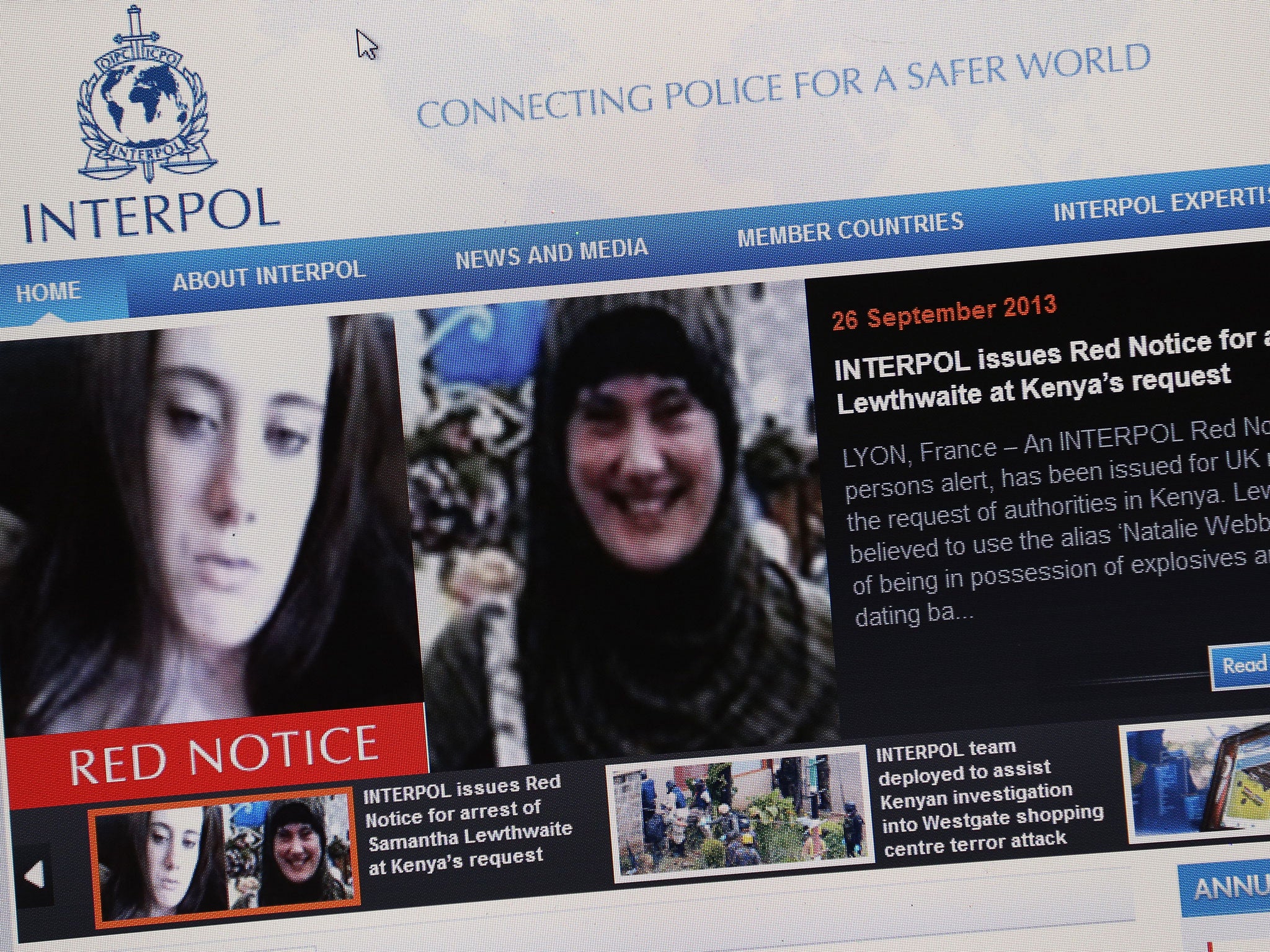Grace Dent on TV: If only British intelligence had done as good a job as this Samantha Lewthwaite documentary

If Samantha Lewthwaite was using her evident powers of tenacity and charm for good, rather than jihad, her story – which we learned during this week’s BBC1 documentary The White Widow – Searching for Samantha – would be an inspirational ditty to tell girls.
For there’s something rather beguiling, even grimly impressive, about the single-mindedness of little Samantha, the rosy-cheeked white girl from Aylesbury who began crossing the terraced street to her Muslim friend’s home at some point in the 1990s when at primary school. Samantha loved eating dinner there, loved the family parties and eventually converted to Islam. From then, the story becomes less heartwarming. Currently Samantha is one of the world’s most wanted terrorists. She was linked to the Kenyan Westgate Shopping Mall siege which killed 67, but others refuted this claim. When Kenyan police raided a terror cell in Mombasa in 2011 those arrested confirmed the head of the cell to be Samantha.
Yet, it’s testament to how well Samantha was liked as a child that none of her former Aylesbury school friends wanted to be interviewed by Adam Wishart. They wanted to “preserve her memory” as a generally good person. Photos of her cherubic face eating chips and ketchup at her mum’s kitchen table while former Aylesbury mayor Raj Khan recalled her as “your typical English rose” made absorbing viewing. Regardless, Wishart made a jolly good fist of rooting around in her past and present. If only British intelligence had done such a sterling job. After Samantha’s first husband Germaine Lindsay killed many others and himself in the London bombings, Samantha deftly convinced police that her role in the marriage was of compliant, dim-witted wife who knew nothing of her husband’s plans. Besides, Germaine – according to her – was a moderate Muslim and only a recent convert anyhow. Wishart showed us the unfeasibility of both this and of Samantha’s ignorance about the plans for 7/7.
Wishart made a brilliant argument about the path to radicalisation of some Aylesbury youths in the 1990s, linking to the chart success of local rap crews Silver Bullet and Caveman, when several young black British rappers and dancers converted from Christianity to Islam. Some of these men didn’t empathise with local preachers and drove to London to listen to Trevor William Forrest, more typically known as the deported radical cleric and hate-preacher Sheikh Abdullah el-Faisal.
In hindsight, it seems utterly obvious what she was up to. As a teenager Samantha was passing on CDs of el-Faisal’s preaching to her friends. Samantha’s former husband Germaine was a friend of el-Faisal. When el-Faisal was imprisoned, Samantha called him regularly. One would imagine all of these pointers would have made it more difficult for widowed Samantha to begin a relationship with another terrorist, disappear into Africa and become linked with the Somalia-based Islamic militants al-Shabaab, but Samantha clearly wasn’t felt to be a threat.
The problem Interpol has, and Wishart truly showed this, is Samantha’s slipperiness and star-value as a martyr’s widow have made her quite the celebrity in al-Qa’ida circles, with various swathes of sympathisers, protectors and financers worldwide helping her hide.
“She drove a big Merc,” was the main thing Samantha’s South African neighbours in the comfortable gated community she temporarily lived in could remember about her. As with the majority of “most wanted” villains, they make brilliant neighbours. I’ve never heard of a serial killer yet who didn’t “keep himself to himself” but “always made time to say ‘hi’ when he was putting his bin out”. Samantha was just like this. No loud parties, no pointless chit-chat, just unobtrusive domesticity and the occasional sweet in her handbag for the neighbours’ kids.
It was this soft, wholly affable side of Samantha that was so absorbing to hear about. Being constantly on the run, leaving homes quickly with personal effects strewn in her wake, meant much of Samantha’s idle and intimate thoughts have been logged by investigators. We saw notebooks from recent years filled with rough business plans to start up a “fitness during pregnancy” mentoring service and sad diary entries about how she misses her partner when he’s away “working”. We saw multiple pouting selfies clearly taken on her laptop camera. We saw Google searches for Beyoncé videos and for weight-loss advice and photos from the birthing suite during the arrival of her fourth child. Here’s just a normal looking family, tired and proud of their new little life.
We came no closer to really knowing what changed this little girl from Aylesbury into a woman who, it now seemed, would gladly kill so many other women’s children in the quest for worldwide religious perfection. Or if this was simply a rather darkly exciting life she’d slipped into and was now dreaming of becoming an aerobics instructor as an exit. I do know that I came away from this hour hoping the authorities arrest Samantha very quickly. Here was a thoroughly empowered modern woman, in the bleakest and most deadly of ways.
Subscribe to Independent Premium to bookmark this article
Want to bookmark your favourite articles and stories to read or reference later? Start your Independent Premium subscription today.

Join our commenting forum
Join thought-provoking conversations, follow other Independent readers and see their replies